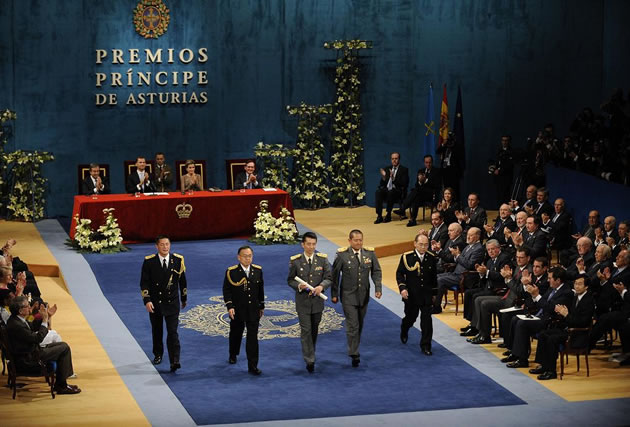4. Europe
Japan and Europe have traditionally shared fundamental values such as democracy, human rights, and the rule of law, and Europe is Japan’s partner for playing leading roles toward the peace and prosperity of the international community. In addition, Europe is an economic superpower that accounts for approximately 25% of the world’s GDP and also plays a significant role with great influence in the areas of making international rules and standards and forming international public opinion in the UN and other multilateral venues. In particular, the United Kingdom and France, which are G8 members and permanent members of the UN Security Council, as well as Germany and Italy, and the EU, also G8 members, continue to have great influence on the international community. At the same time, the power of taking action and the presence of other European states or international organizations such as the North Atlantic Treaty Organization (NATO) are increasing in areas where they have their own strengths. Strengthening relations with Europe is extremely important to Japan to effectively address various global issues, such as security in general, world economy and finance, environmental issues, the fight against terrorism, and nonproliferation of weapons of mass destruction.
In addition, exchange of opinions and deepening mutual understanding between Japan and European states through multi-layered dialogue including VIP visits on how to cooperate in the regions around the world is highly significant for earning support to conduct diplomacy in the Asia-Pacific region and constructing the environment in order to advance diplomacy effectively in the regions, such as the Middle East and Africa.
The European sovereign debt crisis, which began with the issue of Greek sovereign debt that was revealed when the change in political administration took place in 2009, has spread to other European states such as Ireland and Portugal, and there are concerns about its effect on the world economy. Although the EU is making efforts to stabilize the financial markets, for example by creating the European Financial Stability Facility (EFSF) in May 2010, there is also a possibility that the European sovereign debt crisis could affect not just economic and financial matters but also the future course of European integration, as well as political and diplomatic matters. In light of the possible influence of this crisis on the world economy and on the political role that Europe can play, Japan is aware of the necessity to cooperate to the maximum extent possible.
For years, Japan and Europe have maintained close relations not just at the governmental level but through citizen-level exchanges and other activities as well, and European governments and citizens provided great amount of supports in response to the Great East Japan Earthquake in March 2011.
Another development in Japan’s relations with the EU is the conduct of works toward launching of negotiations of a Japan-EU EPA and a binding agreement covering political and other sectoral cooperation based on the agreement reached at the Japan-EU Summit in May 2011.

The representatives of the “Heroes of Fukushima” after receiving the Prince Asturias Award for Concord from
H.R.H Felipe de Borbón, the Prince of Asturias at the presentation ceremony
(October 21, Oviedo City in Spain, photo: the Prince of Asturias Foundation)
